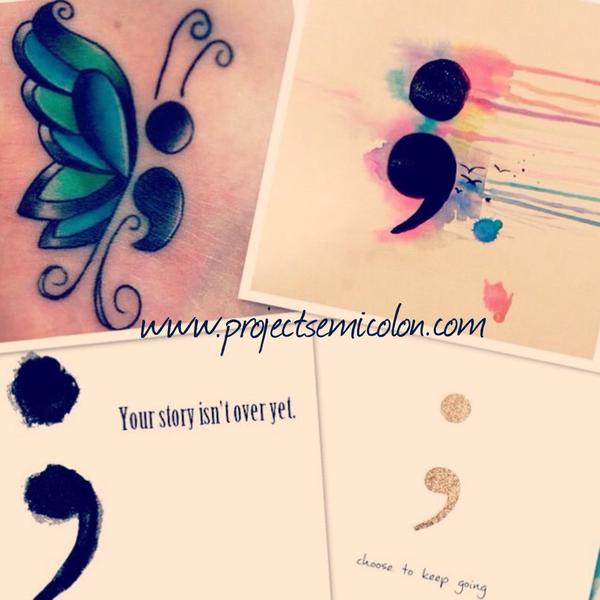Project Semicolon: Punctuation mark helps raise mental health awareness

A lot of people still view tattoos in a negative light, but to others their tattoo is a saving grace. Tattoos can represent a person's triumphs, trials and losses, which is the case with the recent trend of people posting their semicolon tattoos on social media.
The punctuation mark is serving another purpose other than the grammatical, it is also a symbol for mental health awareness.
The idea of using the semicolon was the brainchild of Amy Bleuel. According to the graphic designer, "a semicolon is used when an author could have chosen to end their sentence, but chose not to." But in this case, "the author is you and the sentence is your life."
The simple philosophy resonated with Bleuel, who understands only too well the choices that people with mental health issues face, having struggled with depression, mental illness and thoughts of suicide. Her father also went through the same struggles before taking his own life in 2003.
Bleuel described her father's death as something that "brought more pain to life than anything [she] has ever experienced." Her struggles, and that of her father's, made her determined to offer support and guidance to people who are also going through the same thing. She then made the decision to turn the semicolon into a symbol of hope for anyone struggling with depression and mental illness.
Bleuel started Project Semicolon in 2013 as a way to honor her father and initially asked people to draw a semicolon on their wrist to show their struggles or to show support for loved ones and friends struggling with mental illness. The message quickly spread and two years on, people are getting the semicolon tattooed on their skin as a symbol of their ongoing struggle and triumph over the disease.
Project Semicolon, which is "a faith-based non-profit movement dedicated to presenting hope and love to those who are struggling with depression, suicide, addiction and self-injury," have also grown.
According to the website, the project has become more than what Bleuel envisioned. The support the project gets from musicians and social media has ensured that its message reaches a wide audience in other countries as well.
Blueul hopes Project Semicolon continues to grow and comes to a point that it can also contribute to educating people on mental health issues and help with the treatment.
However, the organization points out that while they aim to provide support and inspiration, it's "not a 24-hour helpline, nor are we trained mental health professionals." They encourage people who feel like they have an emergency, or are worried that they or someone they know might be considering suicide, to call the authorities or other mental health professionals.